Flowers and seeds -> organ systems
Organ Systems
An organ system is a group of organs that work together to perform a specific function or set of functions within the body. The human body is made up of several organ systems, each with its own unique role in maintaining overall health and functionality.
Major Organ Systems
There are 11 major organ systems in the human body:
- Integumentary System: Consists of the skin, hair, and nails, and provides protection and regulates body temperature.
- Skeletal System: Comprised of bones and connective tissues, it supports the body and protects internal organs.
- Muscular System: Includes skeletal muscles, tendons, and ligaments, and allows for movement and stability.
- Nervous System: Controls and coordinates body activities through the brain, spinal cord, and nerves.
- Endocrine System: Produces hormones that regulate various bodily functions and processes.
- Circulatory System: Consists of the heart, blood vessels, and blood, and transports nutrients, oxygen, and waste products throughout the body.
- Respiratory System: Responsible for the exchange of oxygen and carbon dioxide in the body through the lungs and airways.
- Digestive System: Processes food, absorbs nutrients, and eliminates waste through the stomach, intestines, and associated organs.
- Urinary System: Removes waste products from the blood and regulates fluid balance through the kidneys, ureters, and bladder.
- Reproductive System: Responsible for reproduction and includes the male and female reproductive organs.
- Immune System: Defends the body against pathogens and foreign substances through a network of cells, tissues, and organs.
Study Guide
When studying organ systems, it's important to understand the functions of each system, as well as the organs and structures that make up each system. Here are some key points to focus on:
- Identify the major organs and structures within each organ system.
- Understand the primary functions and roles of each organ system in maintaining overall health.
- Be able to explain how different organ systems work together to perform complex bodily functions.
- Learn about common disorders and diseases that affect each organ system, as well as their potential causes and treatments.
- Explore the ways in which lifestyle choices, such as diet and exercise, can impact the health and function of organ systems.
- Consider the interconnections between organ systems and how they contribute to the body's ability to maintain homeostasis.
By understanding the intricate workings of the various organ systems in the human body, you can gain a deeper appreciation for the complexity and resilience of the human organism.
Good luck with your studies!
[Organ Systems] Related Worksheets and Study Guides:
.◂Science Worksheets and Study Guides Fifth Grade. Flowers and seeds
Study Guide Flowers and seeds
Flowers and seeds  Activity Lesson
Activity Lesson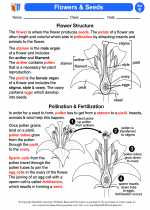 Flowers & Seeds
Flowers & Seeds  Worksheet/Answer key
Worksheet/Answer key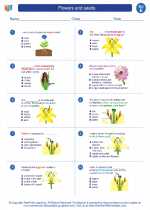 Flowers and seeds
Flowers and seeds  Worksheet/Answer key
Worksheet/Answer key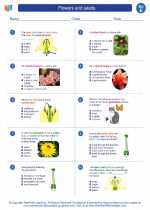 Flowers and seeds
Flowers and seeds  Worksheet/Answer key
Worksheet/Answer key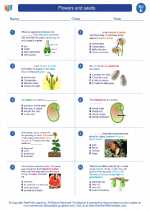 Flowers and seeds
Flowers and seeds  Worksheet/Answer key
Worksheet/Answer key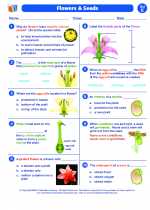 Flowers and seeds
Flowers and seeds  Vocabulary/Answer key
Vocabulary/Answer key Flowers and seeds
Flowers and seeds  Vocabulary/Answer key
Vocabulary/Answer key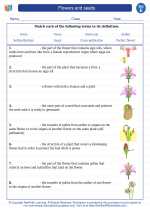 Flowers and seeds
Flowers and seeds 

 Activity Lesson
Activity Lesson
 Worksheet/Answer key
Worksheet/Answer key
 Worksheet/Answer key
Worksheet/Answer key
 Worksheet/Answer key
Worksheet/Answer key
 Worksheet/Answer key
Worksheet/Answer key
 Vocabulary/Answer key
Vocabulary/Answer key
 Vocabulary/Answer key
Vocabulary/Answer key

The resources above cover the following skills:
Life Science
All organisms have structures and systems with separate functions. Students can:
Develop and communicate an evidence-based scientific explanation of the role of different organs or structures that are important for an organism's survival - in both plants and animals